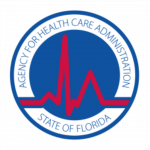Substance abuse, whether illegal or not, comes with the threat of serious health conditions. The scary reality is that addiction is far too common in this day in age. According to the National Center for Health Statistics (NCHS), 92,000 people in the US died from a drug-involved overdose in 2020. This included illicit drugs as well as prescription opioids. Addiction not only alters our brain chemistry but has severe consequences on the body. Some of the common health conditions caused by substance abuse include:
- Cardiovascular Diseases
- Gastrointestinal Effects
- Neurological Effects
- Hepatitis and HIV
- Respiratory Deficits
- Kidney Damage
- Liver Damage
Cardiovascular Diseases
Different types of drugs have different effects on the cardiovascular system. For example, stimulants increase the heart rate whereas depressants can slow it down. Effects can be minor with an abnormal heart rate or severe, leading to a heart attack and cardiac arrest. Additionally, drugs that are injected, like heroin, can cause collapsed veins and bacterial infection of the blood vessels or heart valves.
When the blood pressure is at a consistently high or low rate it causes an increased risk of blood clots, ischemic injury, and other circulatory problems. Diseases that alcohol addiction puts individuals at high risk of are pneumonia, tuberculosis, respiratory syncytial virus infection, as well as acute respiratory distress syndrome.
Some of the drugs that contribute to the threat of cardiovascular diseases include:
- Cocaine
- Heroin
- Inhalants
- Marijuana
- Methamphetamine
- Steroids
Gastrointestinal Effects
A common side effect of substance use, especially when ingested orally, is nausea and vomiting. Cocaine use can cause abdominal pain, as well as bowel tissue decay. Opioid use can lead to not only abdominal pain and acid reflux but constipation.
Furthermore, a common chronic indigestion disease brought on by excessive drinking is gastrointestinal reflux disease or GERD. GERD can damage the esophagus and make eating specific foods painful.
Substance-related vomiting can also cause damage to the esophagus, thus leading to malnutrition issues. On the more severe side, cocaine and meth use are associated with gastrointestinal issues like mesenteric arterial vasospasm. This condition causes the loss of blood between the heart and gastrointestinal system. This can further lead to ischemic colitis or bowel tissue death (bowel necrosis).
Some of the drugs that contribute to the threat of gastrointestinal issues include:
- Heroin
- Khat
- Kratom
- Nicotine
Neurological Effects
Long-term drug use causes the brain to adapt to substance use, leading to changes in the brain chemistry. Physical dependency on a drug leads to addiction which ultimately is a brain disorder. As the addiction continues, some of the parts of the brain’s functionality begin to change. For example, the reward system, decision making, and impulse control.
Alcohol, as well as benzodiazepines, are central nervous system depressants that reduce excitatory brain signaling. Thus, leading to a heightened sense of relaxation. High doses can cause mobility problems, cognitive impairment, and memory loss. Stimulants increase the firing of neurons, leading to heightened attention, emotions, and energy. However, the comedown from these drugs leaving the body cause negative side effects because the brain is taking longer to restore balance to neurotransmitters.
Some of the most severe neurological effects caused by substance abuse can lead to seizures, stroke, and direct toxic effects on the brain cells. Drugs that contribute to the threat of neurological issues include:
- Ayahuasca
- Cocaine
- Heroin
- Ketamine
- Salvia
Hepatitis and HIV
A common virus associated with substances that are injected includes hepatitis and HIV. Oftentimes, risky behaviors like sharing needles occur when partaking in substance use. Thus, putting individuals at high risk of contracting these viruses. Hepatitis and HIV weaken the immune system which increases the chances of contracting other infectious diseases. Some of the drugs that contribute to these diseases include:
- Cocaine
- Heroin
- Methamphetamine
- Prescription Opioids
- Steroids
Respiratory Deficits
Smoking cigarettes or other drugs cause damage to the alveoli in the lungs, thus causing the upper respiratory system more susceptible to injections. These infections include bronchitis, emphysema, as well as lung cancer. Opioids and other CNS depressants slow breathing and if overdose occurs, hypoxia can lead to death. If a person has reduced or depressed breathing patterns for a long period of time because of addiction, the body can actually become starved of oxygen. Thus, leading to damage to other organ systems.
Some of the other drugs that cause respiratory deficits include:
- Ketamine
- Heroin
- Inhalants
- Dextromethorphan (DXM)
- Gamma-Hydroxybutyrate (GHB)
Kidney Damage
The kidneys not only help by filtering toxins out of the bloodstream but are widely affected by large amounts of any dangerous substance in the blood. One of the most threatening conditions to the kidneys associated with substance use is rhabdomyolysis. With rhabdomyolysis, the muscle tissue begins to break down, which then floods the bloodstream with toxic levels of muscle cell contents including myoglobin. The kidneys can then become overwhelmed and unable to filter toxins effectively.
These issues will further result in progressive kidney damage which leads to renal failure, requiring dialysis. Heroin and opioids can cause respiratory depression and reduction in the amount of oxygen which causes kidney. Additionally, additives and impurities added to street drugs clog the small vessels which supply blood to the kidneys following injection. Thus, resulting in damages to these vital organs.
Some of the most common drugs associated with kidney damage include:
- Heroin
- Ketamine
- Inhalants
- Steroids
- Synthetic Cannabinoids
Liver Damage
The liver is responsible for metabolizing nutrients but is also the primary spot of detoxification for many consumed substances. When consuming high levels of substances, like the kidneys, the liver can become overwhelmed and the organ’s tissues begin to break down. Thus, leading to cirrhosis or hepatitis.
One of the main substances that has a large effect on the liver is alcohol. Excessive alcohol consumption or addiction can lead to a spectrum of liver diseases ranging from mild to severe. On the more severe side, alcohol can cause progressive fibrosis and scarring of the liver parenchyma (cirrhosis), which then can develop into liver cancer.
Substances that cause liver damage include:
- Alcohol
- Inhalants
- Heroin
- Steroids
Get Help Today
Before watching you or someone you love suffer from the common health conditions caused by substance abuse, get help. The Harm Reduction Center in Boynton Beach, Florida, offers all levels of outpatient care, as well as aftercare programs to keep you on the path of recovery. HARC is a private healthcare facility that has a passion for helping people through these dark times. They know there is a light at the end of the tunnel and walk with you every step of the way.
If you are ready to break free from your addiction and take the first steps towards recovery, contact us today!














